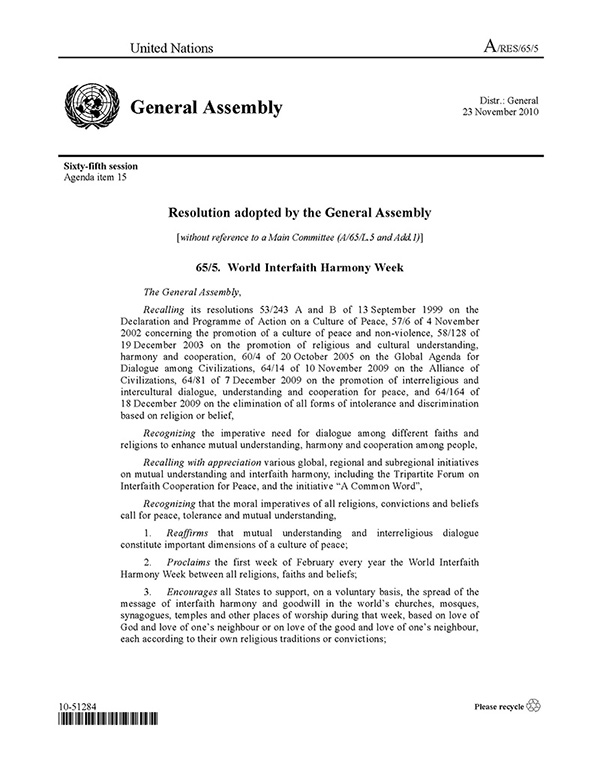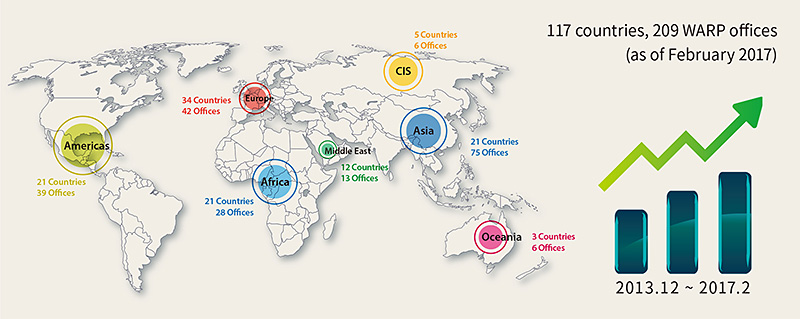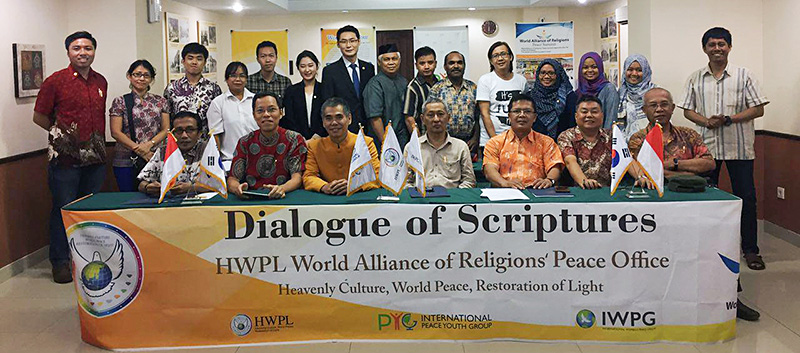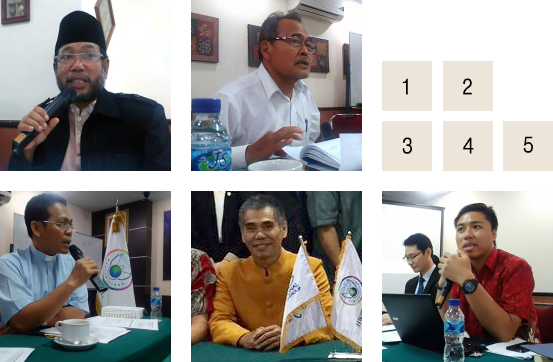HWPL WARP Offices endorsing the UN World Interfaith Harmony Week

“Recognizing the imperative need for dialogue among different faiths and religions to enhance mutual understanding, harmony and cooperation among people”
– Excerpt from UN General Assembly Resolution A/RES/65/5
World Interfaith Harmony Week was proclaimed by the General Assembly in Resolution A/RES/65/5, which was adopted on October 20, 2010. This first week of February every year is designed to enhance interreligious dialogue to create a culture of peace and seek technical and cooperative solutions transcending the boundaries of religions.
HWPL, since its foundation in 2013, has been pursuing practical methods that will lead to the establishment of sustainable peace; such as, the initiatives for the implementation of an international law for the cessation of war and interfaith harmony and unity. At the WARP Summit in 2014, leaders and professionals of various levels and fields of society committed to work together for these initiatives.

HWPL shares the mutual goal with the UN to promote harmony between all people regardless of their religion. As Resolution A/RES/65/5 states: “Recognizing the imperative need for dialogue among different faiths and religions to enhance mutual understanding, harmony and cooperation among people” is a major element in creating a culture of peace. HWPL’s WARP Offices, the worldwide peace dialogue series in interfaith relations and scriptural texts, are a clear example of how HWPL stands by the UN in taking concrete actions for realizing peace.
The latest WARP Office meeting was held in Makassar, Indonesia. Under the topics of “Good and Evil spoken of in Scriptures” and “What can be the result if a scripture doesn’t identify the methods to solve evil,” leaders from various faiths had a fruitful discussion at the 12th Indonesia WARP Office.


Participants of the 12th Indonesia Makassar WARP Office meeting were:
1. Prof. Dr. Muhammad Galib Mattola (Head of the Quality Assurance Office of Islamic State University (UIN) Alauddin Makassar)
2. Prof. Hasyim Aidid (Professor of Islamic State University (UIN) Alauddin Makassar)
3. Mr. Erfan Sutono (Member of Majelis Tinggi Agama Khonghucu Indonesia (MATAKIN) South Sulawesi)
4. Romo Hemajayo Tio (Head of PD. Majelis Agama Buddha Theravada Indonesia (MAGABUDHI) Makassar)
5. Fr. Marselinus Lolo Tandung (Priest of Catholic Archdiocese of Makassar)
Fr. Marselinus Lolo Tandung: “We can find out the explanation why agony and evil occur through religious scriptures. And we should consider [that] the free will of mankind can be used for one’s behavior in not only good ways but [also] bad ways. Pain has come to the humanity by Adam and Eve committing sin. (Genesis 3:16, 18)”
Prof. Dr. Muhammad Galib Mattola: “Though there are so many bad things and destruction in this world, it doesn’t mean that the scripture is not good. God gives people a freedom to choose. (Al-Maidah, 5: 48) There are a lot of stories in [the] Holy Scripture which tell the successful stories of human beings who defeated a bad thing. Such as the History of Yusuf or Joseph who can control his desire. (Yusuf,12: 24)”
Romo Hemajayo Tio: “According to the teaching of Dhamma, it says a person can eliminate pain when practicing the eight sacred teachings (Eightfold Path). The scripture says evil comes from greed, hatred (sin), and spiritual ignorance. Such evil thoughts are not [the] righteous perspective.”
The leaders had the opportunity to recognize diverse perspectives from each religion towards Good and Evil, widening their insight and gaining a better understanding of the origin of good and evil, as well as the method to get rid of the source of evil. As more religious leaders and faith communities join in this interreligious dialogue, more multi-religious cooperation and shared values for peace will be established in society.













